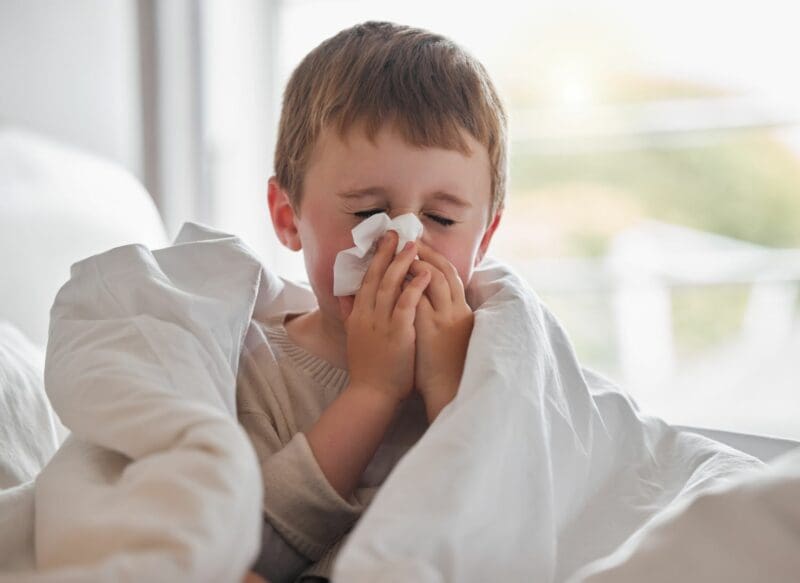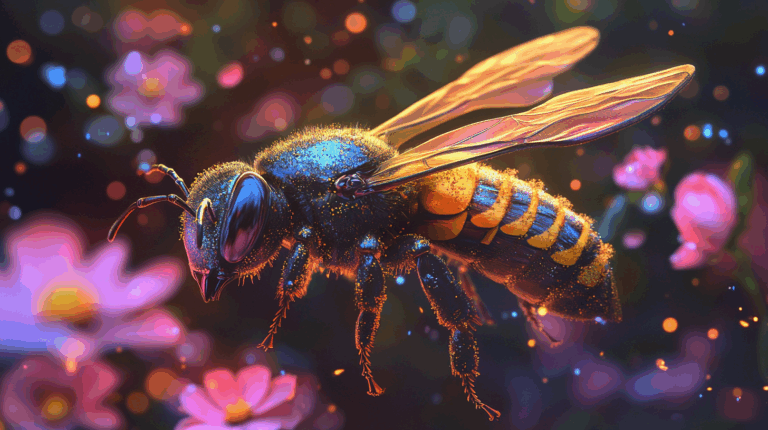Having a kiddo with allergies isn’t easy. It’s hard, as a parent or guardian, to watch your child struggle with the symptoms of allergies, plagued by incessant sneezing, coughing, and similar symptoms. While you may employ various over-the-counter (OTC) medications and environmental control strategies to keep your child as comfortable as possible, there’s only so much you can do.
So, you might find yourself asking, “Can kids outgrow allergies?” The answer? Yep, they can, but it’s not a guarantee. If you want a long-term solution to your kiddo’s allergies, immunotherapy might be a good fit. Here’s what you need to know.
The Science Behind Allergies in Kids
An allergy in a child is just like one in an adult: it happens when the immune system overreacts to otherwise harmless substances, such as pollen, pet dander, or certain foods. When the immune system responds, it triggers the release of histamines and other chemicals, causing those symptoms you recognize as an allergic reaction.
Why Some Kids Outgrow Allergies Naturally
Kids are more likely to outgrow certain allergies during early childhood. For example, if your kiddo is sensitive to milk or eggs, they might eventually grow out of the allergy.
This happens because a child’s immune system undergoes major development during the first few years of life. As the immune system matures, it may learn to tolerate certain allergens that previously kickstarted an allergic reaction. It’s more common with food allergies and isn’t a guarantee, but it can happen.
When Allergies Persist
Unfortunately, not all kiddos will grow out of all allergies. Many environmental allergies, like those to pollen or dust mites, and certain food allergies, such as those to peanuts or shellfish, are more likely to stick around. They’re unlikely to fade with time and can even become chronic or worsen as your kiddo gets older, so early intervention is best.
That’s where allergy immunotherapy comes in. It’s a powerful tool that can help intervene in the early stages when your child’s immune system is still developing.
How Allergy Immunotherapy Works
Allergy immunotherapy has become a popular, long-term alternative to treating allergies. Unlike traditional OTC medications, it actively works to retrain the immune system and build an allergen-specific tolerance rather than masking the symptoms.
It works by repeatedly exposing the body to gradually increasing amounts of the allergen. This, over time, helps teach the immune system to recognize the allergen as harmless, which can substantially reduce or even eliminate allergic reactions.
It’s quite a fascinating treatment that has produced promising results.
Types of Allergy Immunotherapy
If you think allergy immunotherapy might be the right fit for your kiddo, you’ll have two options: sublingual immunotherapy and subcutaneous immunotherapy.
The first, called sublingual immunotherapy (SLIT) or allergy drops, is administered under the tongue in the form of drops or tablets. Allergy drops are more popular for kids since they don’t involve needles or doctor’s visits. Instead, you can administer each dose from the comfort of your own home—no need to pack your kiddos in the car for a trip to the doctor every week.
The second, called subcutaneous immunotherapy (SCIT) or allergy shots, is administered under the skin via an injection. This option is more popular among adults who don’t mind needles since it requires frequent injections. If you go this route, you’ll need to visit your doctor for each dose, as your kiddo will need to stay for monitoring after each dose (this is a necessary precaution since the chances of adverse reactions are higher).
Benefits of Immunotherapy for Children
Immunotherapy can be a phenomenal tool for treating allergies in children. Kids’ immune systems are more adaptable than those of adults, so this treatment can make great improvements.
Early intervention can not only reduce current symptoms but also has the potential to alter the immune system’s trajectory, potentially preventing the development of additional allergies or asthma later on.
It offers all sorts of benefits, including:
- Symptom relief: This treatment focuses on the root cause of the allergy, which allows it to offer more effective allergy relief than over-the-counter medications over the long run.
- Improved quality of life: Allergies can take a toll on your kiddo’s life, limiting everything from their ability to play outside to their performance in school. Reducing or eliminating those symptoms with AIT can greatly improve those areas.
- Prevention of future allergies: While it’s not guaranteed, recent studies show that children undergoing immunotherapy are less likely to develop related conditions, such as asthma or additional environmental allergies, over time.
- Minimized dependence on medications: As your child progresses in their treatment, you may find that they need fewer allergy medications to stay comfortable.
Is Immunotherapy Safe for Kids?
As a parent, it’s only natural to question the safety of treatments you’re unfamiliar with. If you’re considering AIT for your kiddo, you might wonder whether it’s a safe option. The answer? Yes, it is a safe choice.
Immunotherapy is considered safe for children as young as five years old, although this may vary slightly depending on your allergist’s guidelines and your child’s specific case. Side effects of the treatment are generally mild, often limited to localized swelling and itching at the injection site for shots or mild oral itching for sublingual drops or tablets.
Serious reactions are incredibly rare for both types of immunotherapy and can be managed in a controlled medical setting. If you have any questions or concerns as to the safety or suitability of AIT for your child, talk to your child’s allergist or doctor.
Allergy Immunotherapy for Your Child: A Promising Solution to Annoying Allergies
It’s entirely possible for your child to outgrow their allergies naturally, especially if they’re dealing with specific food allergies. However, this doesn’t always happen, so oftentimes, children are left with persistent symptoms that cast a shadow over their quality of life. If your child is in this situation, allergy immunotherapy can be a good solution.
AIT offers a proactive solution that not only alleviates current symptoms but also paves the way for a healthier future. It takes time to work, but with consistent treatment, it can make a huge difference in your child’s life.
So, if your kiddo’s allergies are interfering with their daily routine or showing no signs of improvement, it might be a good idea to chat with an allergist to explore whether AIT is right for your child. With the right treatment and support, you can set your child up for success, opening the door to lasting allergy relief and a brighter, allergy-free future.

















